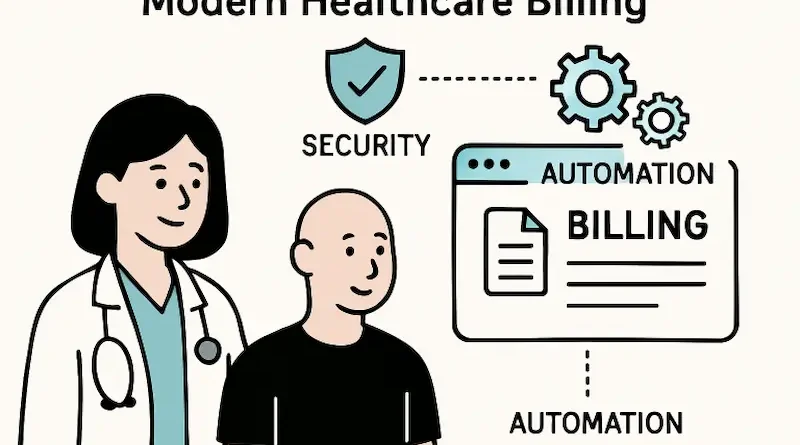Modern Approaches to Healthcare Billing
The healthcare industry is rapidly evolving, especially in managing billing and revenue cycles. Providers and patients have wrestled with cumbersome paperwork, extensive manual processes, and frustrating delays for decades. Advanced technological solutions are ushering in a new era of accuracy, efficiency, and patient-centric financial management. Whether you are a solo practitioner or part of an extensive hospital network, partnering with a trusted medical billing company can be the catalyst for staying ahead in this industry-wide transformation.
These modern approaches are not just about reducing workload but about reimagining how patients experience healthcare finance. As care delivery becomes more consumer-driven, patients expect transparency, security, and ease in their billing interactions. Embracing digital innovation is more than an administrative upgrade; it’s a vital strategy for improving patient satisfaction and trust.
In this article, we’ll explore critical frameworks and technologies that are redefining the structure of healthcare billing, including automation, artificial intelligence, blockchain solutions, and new payment models. By delving into each trend, healthcare organizations can gain insight into best practices and future-proof revenue management operations in a highly competitive environment.
As digital disruption accelerates, being proactive and knowledgeable about these trends ensures optimal revenue cycles and stronger patient-provider relationships. Let’s examine how automation, AI, blockchain, digital payments, and patient-centric innovation drive the future of healthcare billing.

Automation and AI Integration
The adoption of automation is revolutionizing medical billing. Repetitive processes, such as claims generation, submissions, and follow-ups, are increasingly managed by software that minimizes human error and maximizes speed. Automated systems can verify insurance eligibility in real-time, check claims for coding issues, and flag missing documentation before submission, reducing costly denials.
Artificial intelligence takes this progress a step further by learning from billing data. AI-powered billing platforms can analyze enormous datasets to uncover patterns, predict claim denials, and recommend coding adjustments that increase reimbursement accuracy. By integrating AI into the billing cycle, healthcare providers optimize workflow efficiency and facilitate faster payments, all while freeing up staff for more complex tasks. According to Forbes, AI-driven billing reduces administrative costs and enhances compliance and audit readiness.
Blockchain for Secure Transactions
Security and transparency are paramount in healthcare financial management. Blockchain technology addresses both needs by offering a secure, tamper-proof ledger for all medical transactions. With blockchain, patient and provider data can be timestamped and encrypted, making unauthorized alterations virtually impossible.
Adoption of blockchain improves the integrity of payment data, enhances audit trails, and accelerates claims processing by enabling verifiable, real-time communication between patients, providers, and payers. As highlighted by HealthIT.gov, the healthcare industry is beginning to pilot blockchain solutions for claim adjudication and eligibility verification, setting new benchmarks for data security and accessibility.
Digital Payment Systems
Patients expect the same digital convenience in healthcare billing as in other parts of their lives. Modern digital payment systems connect with electronic health record (EHR) and electronic medical record (EMR) platforms to enable seamless, flexible billing options and real-time balance updates.
This integration reduces manual billing steps, accelerates payment cycles, and provides patients with self-service portals to view, manage, and pay their bills from any device. Mobile wallets, text-to-pay solutions, and contactless payment options are transforming how bills are handled, contributing to greater transparency and improved provider collection rates. As The Wall Street Journal reported, the use of digital payment technology has significantly reduced billing complexities for millions of healthcare consumers.
AI-Powered Denial Management
Denial management is one of the most resource-intensive aspects of medical billing. AI-powered platforms can now interpret denial letters, pinpoint recurring issues, and recommend corrective actions tailored to each payer’s requirements. These tools automate the drafting of customized appeal letters and systematically track appeal outcomes, reducing manual effort and improving recovery rates.
The result is a more agile appeals process and higher first-pass resolution rates, which directly benefit revenue cycle outcomes. According to industry analyses by Modern Healthcare, hospitals and clinics adopting AI-driven tools experience fewer reimbursement delays and improved overall financial performance.
Patient-Centric Billing Approaches
The patient experience is finally taking center stage in healthcare billing innovation. Leveraging smartphone and digital design strategies, providers are crafting bill pay experiences that match the intuitive ease of fintech and consumer commerce platforms. When patients receive clear, consolidated bills, payment reminders, and flexible options, their satisfaction—and payment compliance—improves.
Patient-centric service involves not just streamlined payment options, but also transparent estimates and direct communication channels for resolving billing questions. Healthcare organizations implementing these approaches build trust and differentiate their services in a crowded market. As digital payment platforms evolve, expect an even greater focus on making billing accessible, convenient, and understandable for every patient.
Conclusion
Healthcare billing is rapidly advancing through the adoption of cutting-edge technologies and patient-centric innovations. By integrating automation, AI, blockchain, and digital payments into their operations, healthcare organizations can streamline administrative processes, improve security, and deliver a billing experience that puts patients first. Staying informed and adaptable to these trends is essential for any provider aiming to optimize their revenue cycle and maintain a competitive edge in the evolving healthcare landscape.

